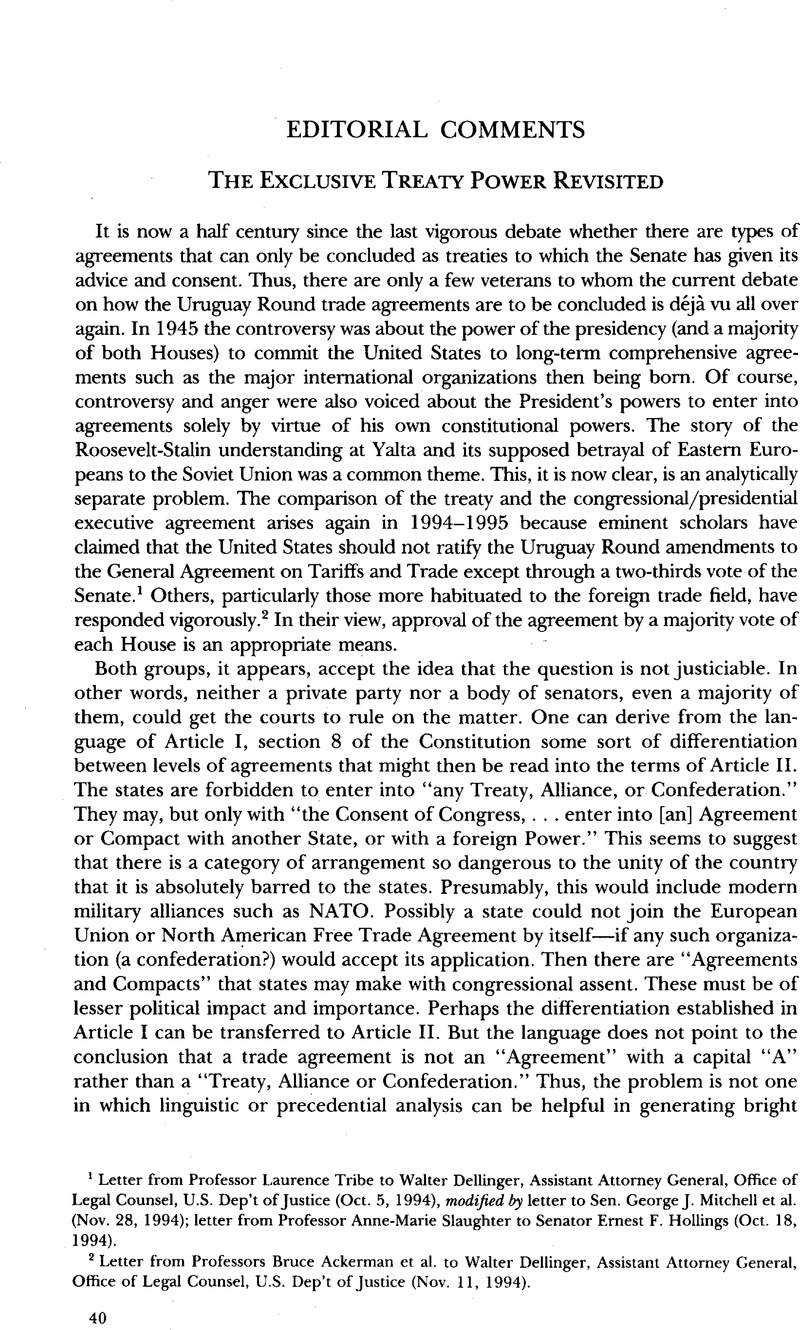Published online by Cambridge University Press: 27 February 2017

1 Letter from Professor Laurence Tribe to Walter Dellinger, Assistant Attorney General, Office of Legal Counsel, U.S. Dep’t of Justice (Oct. 5, 1994), modified by letter to Sen. George J. Mitchell et al. (Nov. 28, 1994); letter from Professor Anne-Marie Slaughter to Senator Ernest F. Hollings (Oct. 18, 1994).
2 Letter from Professors Bruce Ackerman et al. to Walter Dellinger, Assistant Attorney General, Office of Legal Counsel, U.S. Dep’t of Justice (Nov. 11, 1994).
3 Myres S. McDougal & Asher Lans, Treaties and Congressional-Executive Agreements: Interchangeable Instruments of National Policy, 54 Yale L.J. 181, 534 (1945). The Restatement (Third) of the Foreign Relations Law of the United States §303 comment e (1987) characterized this as “[t]he prevailing view.”
4 Restatement, supra note 3, §303 comment e.
5 Arthur Sutherland, Restricting the Treaty Power, 65 Harv. L. Rev. 1305, 1306 (1952).
6 See 1974 Digest, ch. 5, §1, at 195–97.
7 A picture of the difficulty of obtaining Senate consent can be derived from scanning the multivol-ume compendium, Christian Wiktor, The Unperfected Treaties of the United States of America, 1776–1965 (1979).
8 See, e.g., Treaty on the Execution of Penal Sentences, Nov. 25, 1976, U.S.-Mex., 28 UST 7399.
9 See the review of the development of this legislation in Harold Koh, The Fast Track and United States Trade Policy, 18 Brook. J. Int’l L. 143 (1992).